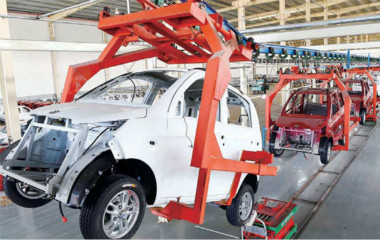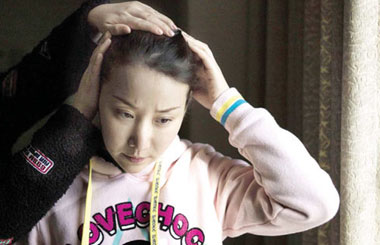China's plan to raise retirement age meets mixed reactions
Updated: 2016-03-04 19:30
(Xinhua)
|
|||||||||
BEIJING-- For millions of Chinese, retirement is still a long while off, however, their concerns for it have arrived a lot sooner than expected.
Yin Weimin, minister of human resources and social security, on Monday announced that this year China looks set to raise the retirement age to offset the pressures brought about by a shrinking work force and an aging society.
In China there were 220 million aged 60 or over in 2015. Currently the retirement age for men is 60, while for women it is 55 for white-collar workers and 50 for blue-collar employees. The retirement age has not progressed in line with economic and social developments.
Yin's announcement has got the country talking. According to a survey by China Youth Daily this week, 90.3 percent of the nearly 170 thousand surveyed were concerned with the plan.
Guo Caifen, a 48-year-old kindergarten teacher, is one. "On the one hand I would prefer to retiring earlier to have fun with my friends," she said.
"On the other, postponing retirement would increase my pension," she added, "It will be in time to look after my grandchildren as well."
Guo's mixed feelings might be unfounded. According to Yin, the changes will be phased in over a period of time with only slight annual increases, which means the early recipients of the policy will have their retirement postponed by a shorter period.
"For example, if you're a man turning 60 when the policy takes effect, your retirement will be postponed by just three months," he explained.
Also, according to Jin Weigang, a researcher with the Ministry of Human Resources and Social Security, the plan is likely to be implemented in 2022 after a five-year transitional period.
Despite the explanations, reactions to the policy are a mixed bag.
"Postponing retirement will limit employment opportunities for the younger generation," said Deng Dasong, a social security researcher at Wuhan University, adding that 30 percent of every 10,000 job vacancies generated in China every year are a result of retirement.
Many expressed the same concern on social media.
"We will struggle to progress if senior staff stay longer in their positions," admitted one user "natsuduo,"adding that young people needed jobs to support their aging parents.
"Carson-Xw" tried to look into it from another angle. "Older employees might have lost their edge before they retire, which may put their jobs in jeopardy anyway."
This has also raised questions over supportive measures for the policy, including the two-child policy, which could add to unemployment and put more pressure on the younger generation.
On the other side, others have played down the problems that postponed retirement might bring.
"In most cases, job vacancies suitable for the young are not the positions held by senior employees," said Su Hainan, vice president of the China Association For Labor Studies.
Zheng Bingwen, researcher at the Chinese Academy of Social Sciences (CASS), agreed. "The employment situation of a country is not directly related to the retirement age," he said.
As for the future, it is widely suggested that the policy be implemented flexibly, a motion supported by 76.8 percent of those surveyed by China Youth Daily.
Fang Lianquan, researcher at CASS, spoke highly of a flexible retirement age policy, which will set a lower minimum retirement age and allow people to apply for early retirement.
"This will be a more humane way to make the change," said Fang. "It is up to the individuals when they want to retire."
"It shouldn't be 'one size fits all' at the end of the day," said "Fusiteyinfu" on Weibo.
Yin Weimin, minister of human resources and social security, on Monday announced that this year China looks set to raise the retirement age to offset the pressures brought about by a shrinking work force and an aging society.
In China there were 220 million aged 60 or over in 2015. Currently the retirement age for men is 60, while for women it is 55 for white-collar workers and 50 for blue-collar employees. The retirement age has not progressed in line with economic and social developments.
Yin's announcement has got the country talking. According to a survey by China Youth Daily this week, 90.3 percent of the nearly 170 thousand surveyed were concerned with the plan.
Guo Caifen, a 48-year-old kindergarten teacher, is one. "On the one hand I would prefer to retiring earlier to have fun with my friends," she said.
"On the other, postponing retirement would increase my pension," she added, "It will be in time to look after my grandchildren as well."
Guo's mixed feelings might be unfounded. According to Yin, the changes will be phased in over a period of time with only slight annual increases, which means the early recipients of the policy will have their retirement postponed by a shorter period.
"For example, if you're a man turning 60 when the policy takes effect, your retirement will be postponed by just three months," he explained.
Also, according to Jin Weigang, a researcher with the Ministry of Human Resources and Social Security, the plan is likely to be implemented in 2022 after a five-year transitional period.
Despite the explanations, reactions to the policy are a mixed bag.
"Postponing retirement will limit employment opportunities for the younger generation," said Deng Dasong, a social security researcher at Wuhan University, adding that 30 percent of every 10,000 job vacancies generated in China every year are a result of retirement.
Many expressed the same concern on social media.
"We will struggle to progress if senior staff stay longer in their positions," admitted one user "natsuduo,"adding that young people needed jobs to support their aging parents.
"Carson-Xw" tried to look into it from another angle. "Older employees might have lost their edge before they retire, which may put their jobs in jeopardy anyway."
This has also raised questions over supportive measures for the policy, including the two-child policy, which could add to unemployment and put more pressure on the younger generation.
On the other side, others have played down the problems that postponed retirement might bring.
"In most cases, job vacancies suitable for the young are not the positions held by senior employees," said Su Hainan, vice president of the China Association For Labor Studies.
Zheng Bingwen, researcher at the Chinese Academy of Social Sciences (CASS), agreed. "The employment situation of a country is not directly related to the retirement age," he said.
As for the future, it is widely suggested that the policy be implemented flexibly, a motion supported by 76.8 percent of those surveyed by China Youth Daily.
Fang Lianquan, researcher at CASS, spoke highly of a flexible retirement age policy, which will set a lower minimum retirement age and allow people to apply for early retirement.
"This will be a more humane way to make the change," said Fang. "It is up to the individuals when they want to retire."
"It shouldn't be 'one size fits all' at the end of the day," said "Fusiteyinfu" on Weibo.
Today's Top News
Chinese brands make a mark in Europe
Expanding footprint
Spanish Princess testifies in tax fraud trial
Women driving growth of O2O in China
Trump, Clinton scoop up key wins on 'Super Tuesday'
British PM threatened with 'no confidence vote'
70,000 may become trapped in Greece
'Grow people' for long-term China-UK relations
Hot Topics
Lunar probe , China growth forecasts, Emission rules get tougher, China seen through 'colored lens', International board,
Editor's Picks

|

|

|

|

|

|






